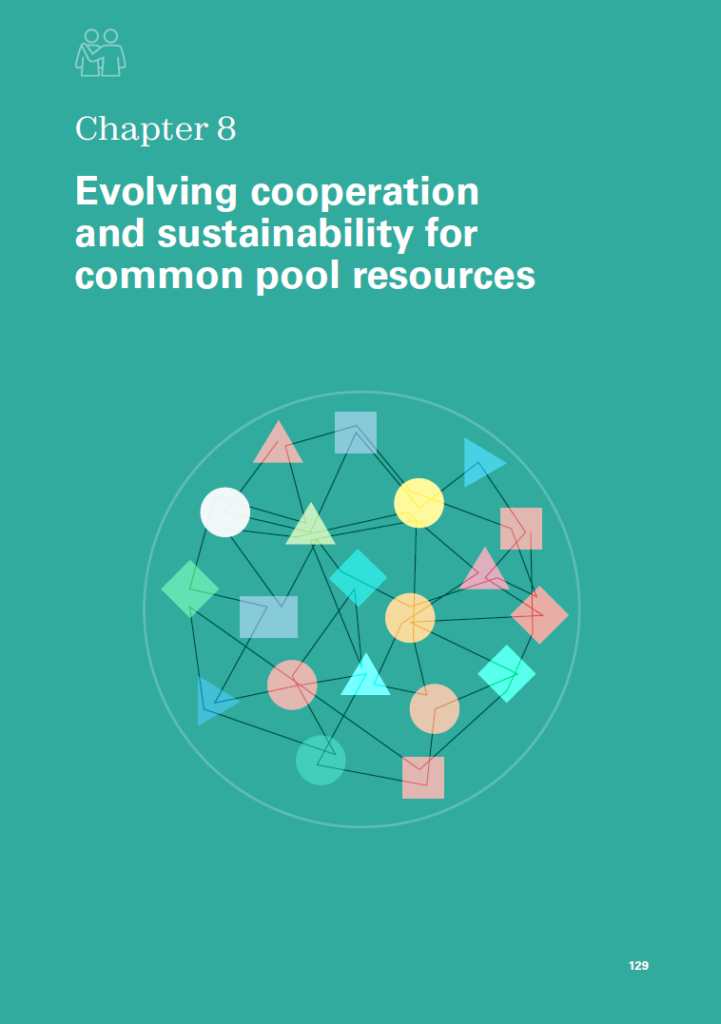Evolution, Cooperation, & Sustainability
A collection of lessons that connect evolutionary thinking
to the socio-scientific issues of human cooperation for sustainable resource use
Sustainable resource management is often a matter of managing common-pool resources (CPR), i.e. social and material resources shared by groups of individuals. CPR can be prone to overuse through the competition between resource users who are motivated to maximize their resource use (or to contribute little to the maintenance of the resource) for individual gain and at the expense of group-level sustainability, an outcome known as the Tragedy of the Commons. CPR dilemmas are pervasive, not only in human contexts, but also across the non-human living world.
Exploring contexts across life in which evolution has favored cooperative traits around shared resources can serve as fruitful lessons to help students gain a deeper understanding of the conditions and mechanisms that foster cooperation and sustainable resource use, and critically transfer these to a variety of socio-scientific issues.
The resources below are part of our chapter Evolving cooperation and sustainability for common pool resources (Hanisch et al. 2023), published in the e-book Learning Evolution Through Socioscientific Issues (Sá-Pinto et al. 2023)
Core Lessons
The core lessons below are accessible starting points for learning about the relationships between evolution, sustainability, and cooperation.
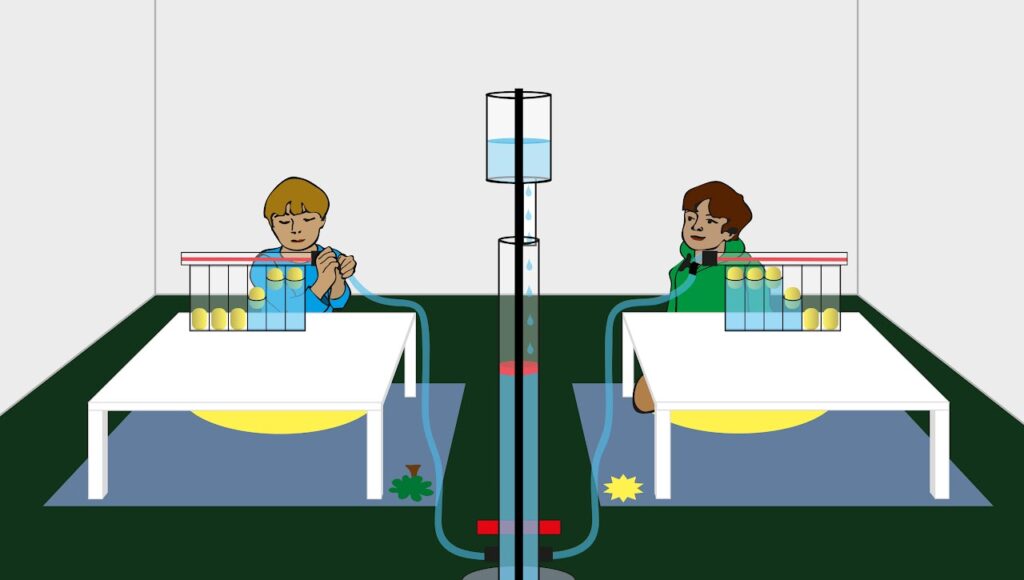
Chimps or children – who is better at sharing resources?
A comparative behavioral research experiment exploring the abilities of chimpanzees and of children to cooperate around a shared resource.

NetLogo: Two Foresters
An interactive introduction into concepts of ecology, behavioral ecology, and sustainability with a computer simulation of a simple social-ecological system.
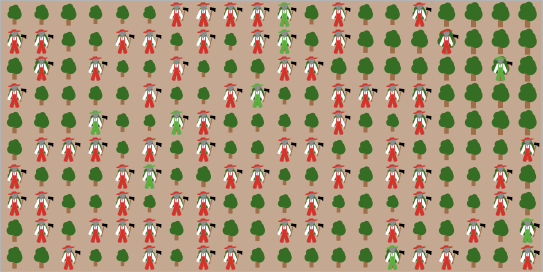
NetLogo: Evolution and competition for forest resources
This NetLogo model builds on the model of Two Foresters. In this model, agents reproduce based on the amount of resources that they harvest.
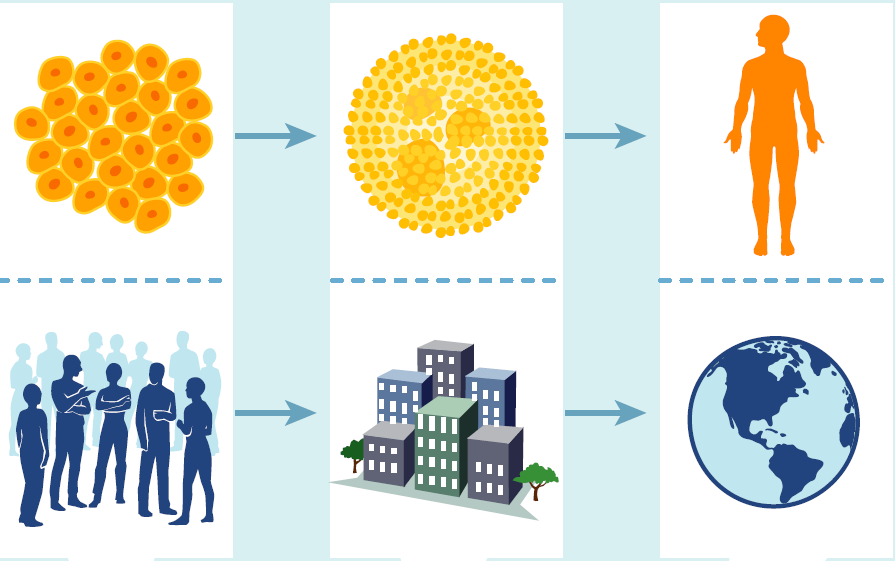
Life in groups and conflict resolution
A reading text about the challenges of life in groups and how groups across biology have found ways to solve these challenges.
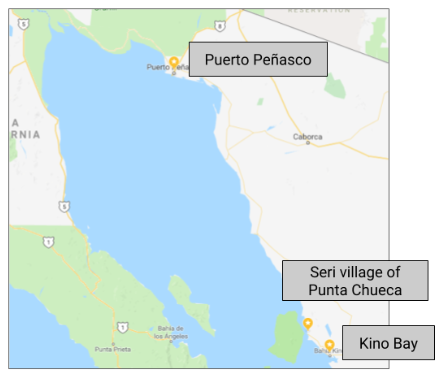
Three Mexican fisheries
Students compare the stories of three Mexican fishing villages to understand the factors that enabled some villages to sustainably manage their fishing resources, while others failed.
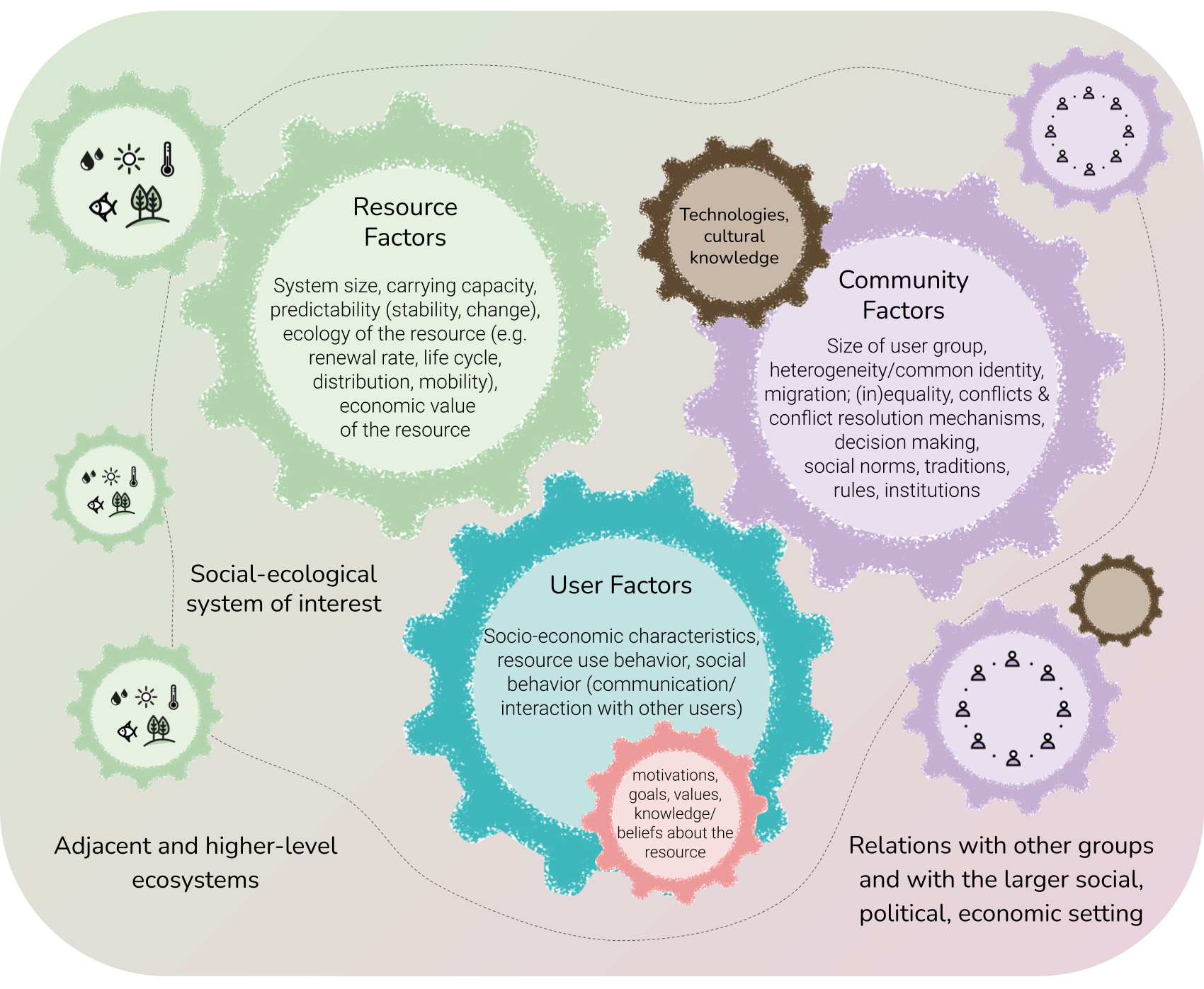
Analyzing social-ecological systems
In this lesson, students analyze a select real-world social-ecological system by looking at factors of the resource(s) and ecosystem, resource user behaviors, and governance, to develop recommendations for improving the sustainable management of the resource.
NetLogo Computer Simulation Extensions
What can we learn about human behavior from computer models?
How do scientists construct quantitative and computational models of evolution, sustainability, and cooperation across human and non-human contexts?
Explore a diversity of entry-level NetLogo models linking evolution, sustainability, and cooperation science.
NetLogo: Evolution of resource use with harvest efficiency
This model introduces the concept of resource use efficiency into the evolution of resource use behavior.
NetLogo: Evolution of resource use and social behavior (monitoring and punishment)
This model lets us explore how the appearance of certain social behaviors can affect evolutionary population dynamics.
NetLogo: Evolution of resource use through behavior imitation
This model adds cultural evolutionary dynamics through behavior imitation to the evolution of resource use behavior.
Further Extension resources
Exploring the Design Principles for Cooperation
Students explore the principles that allow groups to work together and achieve common goals, applying them to the groups that they are a part of or care about.
Commons game
In a classroom simulation game with changing conditions students develop strategies for the use of a common resource so that the profit for the entire group is maximized.
Collective Action Puzzle Game
A group game that lets students experience the dilemma between self-interest and collective interest when groups have to work together to achieve shared goals.
Stone Age Hunting Game
A cooperation game that simulates the challenge of our stone age ancestors to acquire food in the African savanna
Introduction to social dilemmas and the payoff matrix
Students reflect on the causes and consequences of human behaviors in situations of social interactions, and are introduced to the payoff matrix as a helpful tool to represent motivations and outcomes of behaviors.
Climate Change Game
A cooperation game that lets students experience some of the challenges of cooperation in addressing global climate change
Honeybee Democracy
Students explore how a honeybee swarm makes a decision about their future nesting site, and explore the similarities and differences to how human groups make decisions.




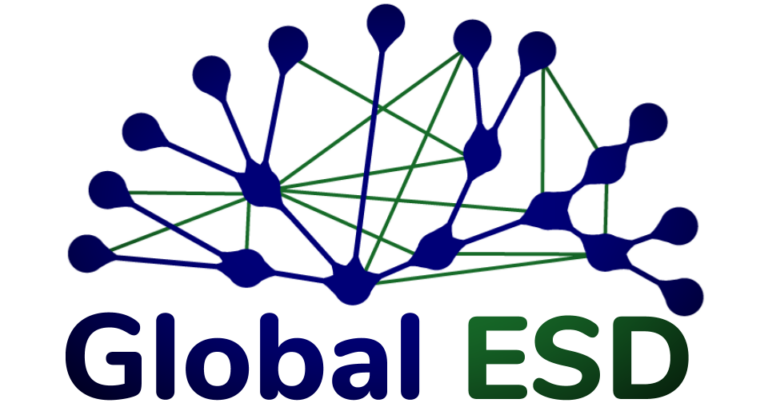
This resource collection was developed with the cooperative support of the
Max Planck Institute for Evolutionary Anthropology, Department of Comparative Cultural Psychology
together with our University partners. On-going implementation and evaluation is being supported by Global ESD and the Evolving Schools Network.


